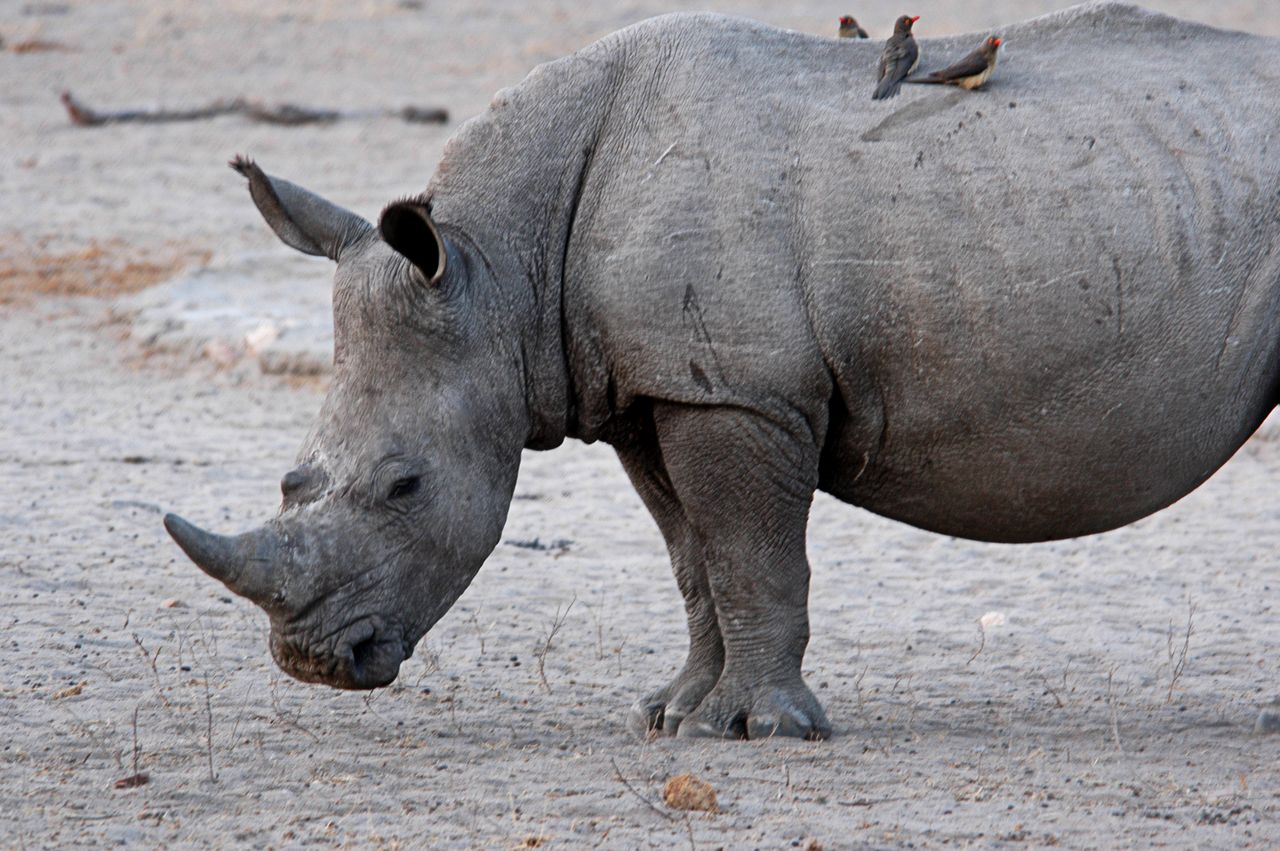Manitoba Has Too Many Oxpeckers

Mutualism is a term that describes a relationship where two organisms have a close, mutually beneficial relationship.
One well-known example in the animal world would be the rhinoceros and oxpecker. The latter being the type of bird often captured in photos perched on a rhino’s back. The bird benefits as a rhino’s hide is often full of ticks and they make for tasty treats. The rhino benefits as it gets free health care courtesy of the bird.
The relationship between taxpayers and governments should be similar. A healthy large body of taxpayers (a rhino) should pay reasonable tax rates (ticks) to the government in exchange for services from government employees (oxpeckers).
The problem in Manitoba is that our rhino is overwhelmed with oxpeckers on its back. The ticks have long been eaten up and now the oxpeckers are slowing down the host and munching on its flesh. In other words, Manitoba has too many bureaucrats.
The latest Statistics Canada figures show that approximately 20.7 per cent of people working in Canada are employed by the government in one form or another. Yet, in Manitoba it’s much higher; 27 per cent.
But this wasn’t always the case. Just 15 years ago only 19.1 per cent of Canadians worked for the government and ‘only’ 23.4 per cent in Manitoba. Look at the numbers more closely and you’ll see no province in Canada has seen its share of government employees climb faster than Manitoba over the period. We’ve jumped from 6th highest to 3rd highest.
If you drill down on the numbers even further and look at just those employed by the provincial government and provincial institutions (schools, hospitals, universities, but not including crown corporations) you’ll find that 9.3 per cent of all Manitobans work for such bodies; 36.6 per cent higher than the national average.
Hopefully now you can see why we pay some of the highest taxes in Canada. It’s the real reason the government raised the sales tax and raided Manitobans’ wallets through various other measures; increases to gas taxes, alcohol taxes, speeding tickets and death certificate fees to name a few.
In the wild, a rhino might die off if it was slowed down by so many oxpeckers. However, Manitoba stays afloat courtesy of financial handouts the federal government requires wealthy provinces like Saskatchewan to pay. This year alone our government will receive $1.7 billion of such handouts; nearly 12 per cent of our budget.
All that being said, a high number of people employed by the government doesn’t just cost taxpayers money, it makes it hard to push for change at the ballot box. Obviously government workers are reluctant to vote for any party giving off vibes of downsizing or spending control. Even those who don’t work for the government may get concerned about a spouse or family member losing their job.
But thankfully, there’s a simple and pain-free way to deal with the situation; retirements. Provincial figures show over 40 per cent of government employees will be ready for retirement over the next decade. As those employed in not-so-essential positions retire, don’t re-fill the positions.
Somehow other provinces are getting by with fewer oxpeckers. It’s time for Manitoba to follow suit.
